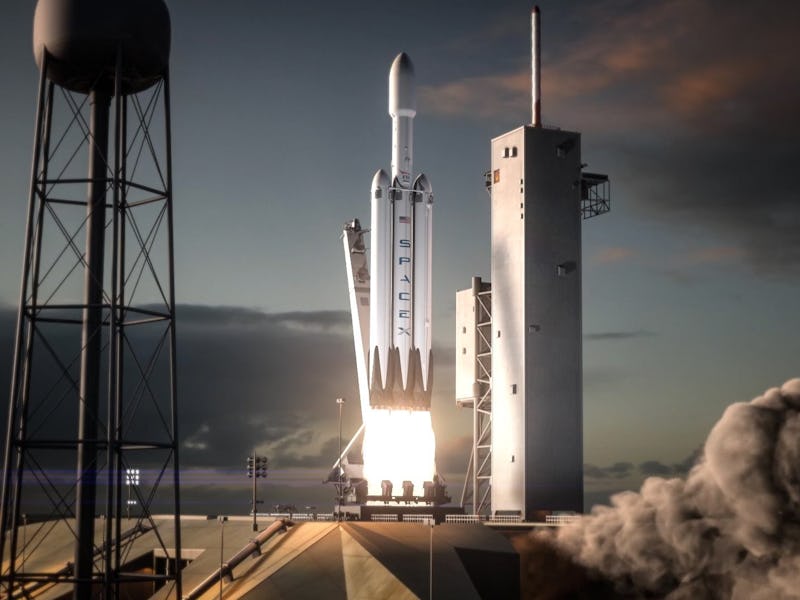A Failed Falcon Heavy Test Launch Hurt SpaceX's Moon Mission
Is late 2018 too soon?

Late Thursday, SpaceX CEO Elon Musk finally revealed the company would attempt the first-ever launch of the upcoming Falcon Heavy rocket sometime in “November.” Great news for everyone who has been waiting anxiously to see what the biggest rocket in the world will be capable of — except that Musk himself is pretty pessimistic about the odds the launch will go smoothly. “Real good chance that that vehicle does not make it to orbit,” he said last week at the ISS R&D Conference in Washington, D.C.
That’s discouraging, of course, but there’s more to a failed Falcon Heavy launch than just disappointed feelings. The new rocket is designed to help spur SpaceX’s foray into deep space, aka regions beyond Earth’s orbit.
SpaceX’s first deep space mission — which will utilize the Falcon Heavy rocket architecture — will be a crewed trip around the moon, in which two space tourists will ride a Dragon 2 spacecraft around lunar orbit for the first time since the end of the Apollo program. SpaceX is targeting to hold the mission in late 2018.
That’s a tight squeeze — especially given the low odds of success for the first Falcon Heavy mission later this year. It took SpaceX an entire year of failed attempts before it figured out how to successfully land its Falcon 9 booster rocket. If Falcon Heavy does not even manage to make it into orbit, SpaceX will have just one year of more testing to fine tune the design before it’s supposed to send human lives on a trip around the moon using that rocket.
“No question, whoever’s on the first flight … brave,” Musk joked during that ISS R&D interview.
That consequence is not lost on outside observers. A Reddit user points out that Falcon Heavy will need to be “Category 3 certified to launch the Dragon Crew capsule with passengers on a free return trajectory around the Moon.” The company hasn’t even gotten the Falcon 9 / Crew Dragon system certified to take astronauts to the space station yet.
The maiden launch is giving Musk a “major pucker factor” feeling, but it’s the future lunar mission that’s going to be much more nerve-wracking, especially if the November mission ends poorly.
SpaceX, to its credit, works with the typical iterative and troubleshooting speed of a startup, but its unclear whether the company really will be ready to send people around the moon by late next year. The company has an amazing track record of success as well as failure and setbacks — and nowhere is this clearer than in the consistent pushback of crew vehicle testing deadlines for several years now.
In all likelihood, if the Falcon Heavy November launch ends in disappointment, chances are very good no one will be going to the moon next year.